In the two days of technology venture capital news, the two companies with the most frequent appearances are: Nintendo and Line. First, the stock price of Nintendo, soared with the popularity of Pokémon Go. After soaring 9% last Friday, it continued to climb rapidly to 23% on Monday, becoming a record high with a market value of $7.5 billion. Then, the instant messaging App Line will be listed in New York and Tokyo on Thursday, with a planned financing of $1.14 billion, making Line's valuation close to $7 billion and possibly the largest corporate IPO this year.

Before, we mentioned well-known technology innovation companies. The first ones were always thought of as "American-made" unicorns. But with the Brown Bear, Kenny Rabbit and Pokemon occupying the world, they can't help but find that the technological innovation companies that were not too prominent in Japan have also grabbed the attention of the whole world.

Japan develops the first unicorn
On March 3 this year, Mercari , a C2C second-hand trading platform in Japan, announced that its D-round financing had received $75 million in news. To this end, Mercari has raised more than $111 million in financing, including Mitsui & Co., Japan Development Bank, Japan Co-Invest, Globis Capital Partners, World Innovation Lab and Global Brain. In this way, Mercari became the first unicorn-level innovation company in the island.
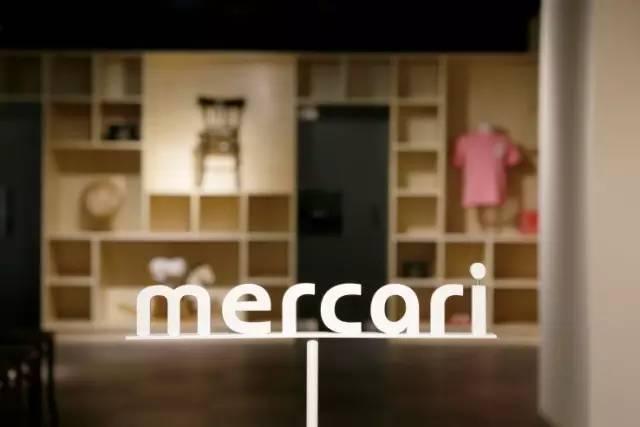
Mercari was founded in 2013 and is positioned as a flea market on mobile phones. Anything that you have idle and don't want can be sold to them. However, the same is to sell second-hand goods. Why does Mercari compete with American big cattle such as eBay, Craigslist and OfferUp, and how to close the flea market in Line's Line Mall?

According to Mercari's CFO Kei Nagasawa, Mercari is going to be a pure mobile phone. Users only need to take a photo, check the old and new, the delivery location, the delivery method and other basic information and then hang it on Mercari for sale. No more than 3 minutes. And Mercari strives to make the process of buying and selling items the easiest. For example, they cooperated with Yamato , one of Japan's largest logistics companies. After selling the goods, the user simply printed the barcode generated automatically by the system and posted it. There is no need to fill in the address and other information at all, which reduces the headaches in the delivery.
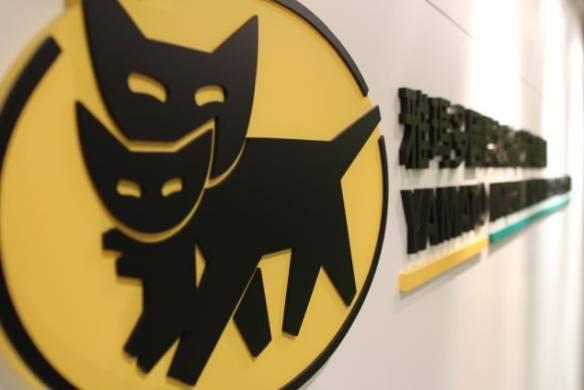
Easy to use and naturally welcome. In the three years since Mercari went online, the total number of downloads has exceeded 32 million, and the monthly trading volume of the platform has reached $88 million.
In the second-hand market, Japan has developed this Mercari unicorn for a certain reason. In addition to Japan's relatively mature credit system guarantees the creditworthiness of buyers and sellers, and the decline of Japan's overall economic environment has led to weak national income growth. Everyone's wages can't keep up with the price, and they are more inclined to increase the utilization rate of idle items. Mercari saw this opportunity and it came into being.
Is entrepreneurship the last chance in Japan?
Although the domestic economy is not in good shape, technology has always been Japan’s strength. According to relevant WIPO data, Japan was the second largest country in the world in 2015 (after the United States), and it is also the country with the largest number of patents per capita in the world. These are all inseparable from the Japanese concept of focusing on STEM education (science, technology, engineering, mathematics).

As a result, many related venture capital companies, incubators, and innovative companies have emerged. For example, the research group called Leave a nest, which combines science, education, and business. It may be difficult for us to give a clear definition of Leave a nest, but what they do is to bring together domestic graduate students, doctors and other high-skilled people to jointly promote the development of education and research. They have launched a technology called Tech Planter . Entrepreneur accelerator.
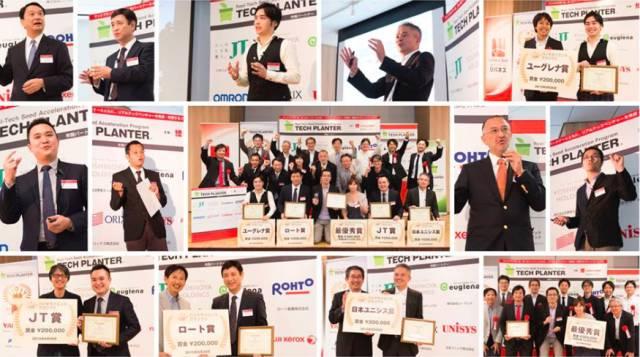
Currently, the project supports more than 40 seed companies in hardware, biotechnology, and agricultural technology, providing services for coaching, business planning, and fundraising.
Not only are many of the Tech Planter-backed startups high-tech, but they also have the ambition to conquer the world. Nowadays, many places use clean solar panels to generate clean energy, but once the dust, sand and dust cover the panels, the conversion efficiency of solar energy will be greatly reduced. The traditional way of cleaning is labor-intensive and expensive, so Japan's Miraikikai company has developed a robot that can clean large solar panels without water.
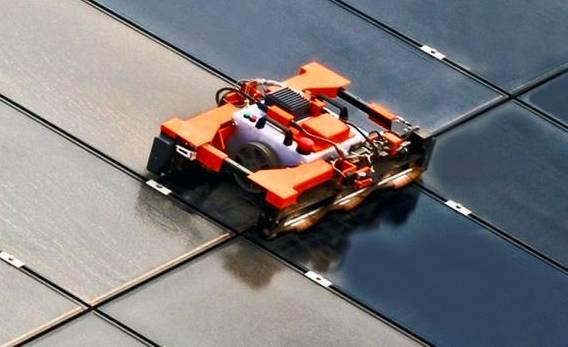
In addition, Japanese startup Challenergy has developed the world's first typhoon generator. A vertical axis wind turbine that can collect typhoon energy without a fan page. It is expected to provide a safe and stable energy backup for the world in response to the next disaster. The startup company Schaft also launched a biped robot with no knee joints, but can hold 60 kilograms of weight up and down the stairs. This cutting-edge technology was acquired and acquired by Google three years ago.
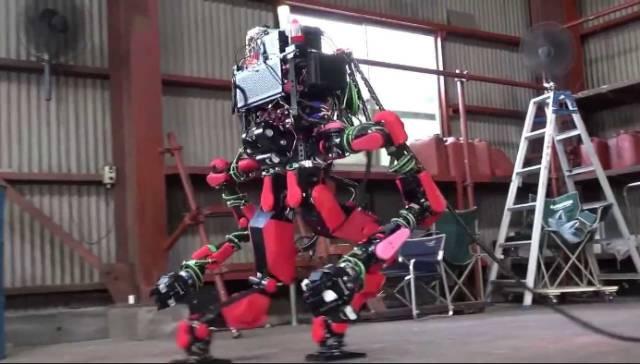
Mitsuru-Izumo, the founder of the $1 billion biotech company Euglena and Japan’s iconic technology entrepreneur, Mitsuru-Izumo once said: “(Entrepreneurship) will be the beginning of the revitalization of the Japanese economy, if our generation does not release youthful vitality Japan will be even weaker and will not escape the disaster of the next Fukushima earthquake and tsunami. Entrepreneurship will be Japan’s last chance.†Japanese technology startups can seize the winds of Nintendo and Line. Flying sky seems not to be impossible. Because after all, sometimes only one or two success stories are needed to change the world.

In the two days of technology venture capital news, the two companies with the most frequent appearances are: Nintendo and Line. First, the stock price of Nintendo, soared with the popularity of Pokémon Go. After soaring 9% last Friday, it continued to climb rapidly to 23% on Monday, becoming a record high with a market value of $7.5 billion. Then, the instant messaging App Line will be listed in New York and Tokyo on Thursday, with a planned financing of $1.14 billion, making Line's valuation close to $7 billion and possibly the largest corporate IPO this year.

Before, we mentioned well-known technology innovation companies. The first ones were always thought of as "American-made" unicorns. But with the Brown Bear, Kenny Rabbit and Pokemon occupying the world, they can't help but find that the technological innovation companies that were not too prominent in Japan have also grabbed the attention of the whole world.

Japan develops the first unicorn
On March 3 this year, Mercari , a C2C second-hand trading platform in Japan, announced that its D-round financing had received $75 million in news. To this end, Mercari has raised more than $111 million in financing, including Mitsui & Co., Japan Development Bank, Japan Co-Invest, Globis Capital Partners, World Innovation Lab and Global Brain. In this way, Mercari became the first unicorn-level innovation company in the island.

Mercari was founded in 2013 and is positioned as a flea market on mobile phones. Anything that you have idle and don't want can be sold to them. However, the same is to sell second-hand goods. Why does Mercari compete with American big cattle such as eBay, Craigslist and OfferUp, and how to close the flea market in Line's Line Mall?

According to Mercari's CFO Kei Nagasawa, Mercari is going to be a pure mobile phone. Users only need to take a photo, check the old and new, the delivery location, the delivery method and other basic information and then hang it on Mercari for sale. No more than 3 minutes. And Mercari strives to make the process of buying and selling items the easiest. For example, they cooperated with Yamato , one of Japan's largest logistics companies. After selling the goods, the user simply printed the barcode generated automatically by the system and posted it. There is no need to fill in the address and other information at all, which reduces the headaches in the delivery.

Easy to use and naturally welcome. In the three years since Mercari went online, the total number of downloads has exceeded 32 million, and the monthly trading volume of the platform has reached $88 million.
In the second-hand market, Japan has developed this Mercari unicorn for a certain reason. In addition to Japan's relatively mature credit system guarantees the creditworthiness of buyers and sellers, and the decline of Japan's overall economic environment has led to weak national income growth. Everyone's wages can't keep up with the price, and they are more inclined to increase the utilization rate of idle items. Mercari saw this opportunity and it came into being.
Is entrepreneurship the last chance in Japan?
Although the domestic economy is not in good shape, technology has always been Japan’s strength. According to relevant WIPO data, Japan was the second largest country in the world in 2015 (after the United States), and it is also the country with the largest number of patents per capita in the world. These are all inseparable from the Japanese concept of focusing on STEM education (science, technology, engineering, mathematics).

As a result, many related venture capital companies, incubators, and innovative companies have emerged. For example, the research group called Leave a nest, which combines science, education, and business. It may be difficult for us to give a clear definition of Leave a nest, but what they do is to bring together domestic graduate students, doctors and other high-skilled people to jointly promote the development of education and research. They have launched a technology called Tech Planter . Entrepreneur accelerator.

Currently, the project supports more than 40 seed companies in hardware, biotechnology, and agricultural technology, providing services for coaching, business planning, and fundraising.
Not only are many of the Tech Planter-backed startups high-tech, but they also have the ambition to conquer the world. Nowadays, many places use clean solar panels to generate clean energy, but once the dust, sand and dust cover the panels, the conversion efficiency of solar energy will be greatly reduced. The traditional way of cleaning is labor-intensive and expensive, so Japan's Miraikikai company has developed a robot that can clean large solar panels without water.

In addition, Japanese startup Challenergy has developed the world's first typhoon generator. A vertical axis wind turbine that can collect typhoon energy without a fan page. It is expected to provide a safe and stable energy backup for the world in response to the next disaster. The startup company Schaft also launched a biped robot with no knee joints, but can hold 60 kilograms of weight up and down the stairs. This cutting-edge technology was acquired and acquired by Google three years ago.

Mitsuru-Izumo, the founder of the $1 billion biotech company Euglena and Japan’s iconic technology entrepreneur, Mitsuru-Izumo once said: “(Entrepreneurship) will be the beginning of the revitalization of the Japanese economy, if our generation does not release youthful vitality Japan will be even weaker and will not escape the disaster of the next Fukushima earthquake and tsunami. Entrepreneurship will be Japan’s last chance.†Japanese technology startups can seize the winds of Nintendo and Line. Flying sky seems not to be impossible. Because after all, sometimes only one or two success stories are needed to change the world.

Gas Outdoor Grills
Gas Outdoor Grills,Portable Gas Grill,Best Portable Gas Grill,Gas Grill Smoker Combo
Jiangmen Merit Metal Electric Appliance Co.,Ltd. , https://www.meritbbq.com









